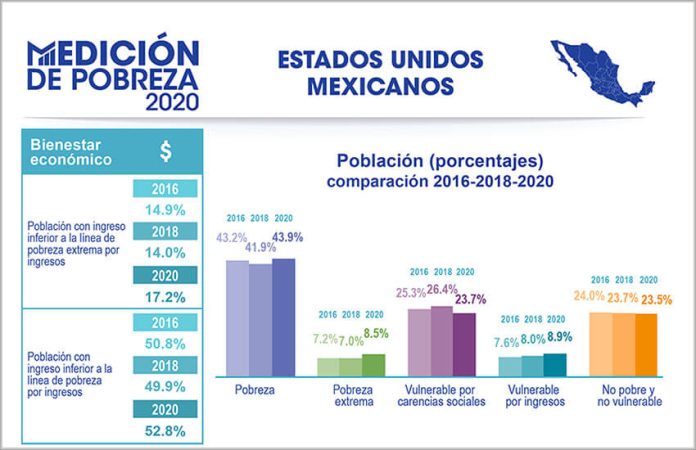AMLO won, you guys!
Against … not AMLO, I guess?
For the past couple of months, I’ve been seeing ¡Vota Sí! signs and billboards up all around my city. The president looks handsome and confident, his teeth as perfectly white as his hair. One could almost think he hadn’t been the one to organize this weird performance in the first place.
The “recall vote,” set up and promoted by the president himself, seems to have been nothing more than a bizarre but predictable (and expensive) ego exercise.
With fewer than 20% of the eligible population voting, the results are not considered legally binding. But no matter! Over 90% of that sliver of the population loves him and voted to have him finish out his term.
Those who love him do so feverishly.
I’ve learned my lesson several times over by now that pointing out any faults to a diehard AMLO supporter gets you to the same place as an argument with a diehard Trump supporter does (nowhere, plus you’ll probably be kind of grouchy afterward). Both groups see their respective charismatic leader as a rebellious but noble underdog actively saving the country by daring to go up against the status quo.
They also apparently see them as incredibly sensitive, deeply in need of their supporters’ overtures to find the motivation to fight another day. One interviewee told the New York Times, “Andrés often feels alone because he has to go against an entire system and doesn’t have support.”
But how much has the status quo actually changed under his rule?
Precious little, from where I’m sitting. But let’s start with the positive.
There’s more help for the poor, and social programs for them have increased; that’s a positive thing. Credit where credit is due. Mexico’s poorest are getting much more help than they did under previous governments, and that’s something I applaud.
The minimum wage has gone up four times since he came to office. The former presidential mansion is now a museum open to the public, which is cool.
And while I worry and am generally suspicious about money being diverted from government organizations that need it in order to function and actually serve their purpose (the National Electoral Institute [INE] and the National Anti-Corruption System come to mind), I think the general idea of reducing exorbitant, bloated budgets, ones in which most of the money got driven into individual pockets rather than toward actual services, was at least a good try.
Another positive thing: they did a fantastic job at getting people their vaccines and seem to be set to (finally!) give them to children as well.
But in so many other ways, plenty of things remain painfully similar.
Let’s take all those Vota Sí signs that have been up for the past month, for example. A few weeks ago, a friend of mine who works for the government was forced to spend his Saturday putting them up all over town. It wasn’t a volunteer gig, he said; if you work for the government, then “showing support” for whoever’s in power is part of your job.
This is how it’s always been, especially in Veracruz, but it’s one of those things I thought surely the new president wouldn’t tolerate. Forced political participation and shows of false support? Doesn’t sound very democratic to me.
Add to that the embarrassing new airport project, which seems to have just been the product of a tantrum over wanting to stop the one that was already being built.
Add to that the Maya Train project being protested by environmentalists (“pseudo-environmentalists,” as AMLO calls them, discrediting them in the same way he tries to discredit the women’s movement by saying his female critics are pseudo-feminists who really just want to undo his Fourth Transformation).
Then there’s the law set to guarantee market dominance for the country’s state electricity company, the Federal Electricity Commission that will put us on the map for going in the opposite environmental direction that we should. It’s a law blocking the possibility of clean energy precisely at the time the scientific community tells us we’re at the point of no return for saving this planet.
And call me bitter, but I’m still in disbelief that so many people lost their jobs or had to close their businesses and were allowed to fall into poverty during wave after wave of the COVID pandemic, with not a peso of help in sight.
What else has not changed? Oh, let me count the ways.
A new report by the UN noted how disappearances are up in Mexico amid the near-complete impunity of criminals. Narcos continue to roam free and collude with government officials. Bodies and body parts are still lying around, unidentified, all over the country. Swaths of people have literally been pushed out of their homes by narcos while the president denies the problem even exists.
And we still don’t know what happened to those 43 teaching students from Ayotzinpa.
Laws and policies are great but meaningless if they can’t be enforced. And so far, there doesn’t seem to be a plan or strategy for making sure the most important ones — the ones that protect life, limb and liberty, for example — can be enforced in the least.
The president is great at lip service. He’s great at assuring people that things are changing. But the hard numbers say otherwise. Once again, it seems that the emperor has no clothes.
Okay, fine. He’s got a tankini.
Sarah DeVries is a writer and translator based in Xalapa, Veracruz. She can be reached through her website, sdevrieswritingandtranslating.com and her Patreon page.
